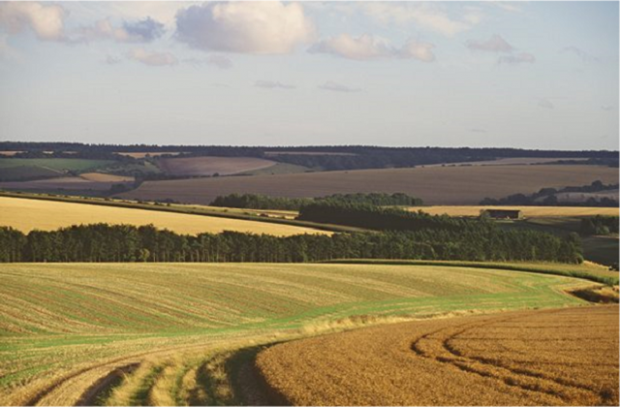
Today there is inaccurate coverage running in the Guardian and Independent following a new report published by the People’s Vote which claims 50 per cent of farms and farm businesses could go bankrupt as a result of a no-deal Brexit.
The report speculates on the potential impact that could follow if the Government were to stop direct payments in the case of a no-deal. Not only does the Government not recognise any of the figures included within this report, which is entirely speculative, we have been very clear that once we leave the EU on 31st October, the cash total for farm support will be protected until 2022. This will remain the case even if we leave with no-deal.
In the unlikely instance it is needed, we have also been clear we will not hesitate to intervene to provide direct support for some sectors.
As the Prime Minister has said, leaving the EU provides a historic opportunity to shape new domestic policies that work for our farmers across the UK and we will make sure that farmers get a better deal.
The Government is boosting its preparations for a no-deal Brexit to ensure there is as little disruption as possible to our national life and has contingency plans in place to minimise any disruption to farmers.
A Defra spokesperson said:
“We have been very clear that once we leave the EU on 31st October, we will replace the Common Agricultural Policy with a fairer system of farm support and our new trade deals must work for UK farmers, businesses and consumers.
“As we have said before, the cash total for farm support will be protected until 2022, even in the event of a no-deal Brexit. We will also intervene to provide direct support to boost some sectors in the unlikely event this is required.”
6 comments
Comment by Anthony Oliver posted on
World market access means importing! You would import everything! Have you learned nothing about the importance of maintaining as far as possible our independence, this is the foundation consideration for all those who voted leave who do not want to be reliant on other countries for our management and existence. Some of them distinctly unreliable with poor
standards. Probably OK for you but NOT for me. I am also rather keen on our sovereignty!
Comment by J dumont posted on
The world has many places where, due to climate and good soil composition, food can be produced at prices below those of the U.K.
We must not deny our public this food in order to prop up UK farming.
Subsidies must be used to provide local food for our population only where food grown with high animal welfare and lower/equal than world prices can be supplied; not just to aid existing farmers to stay in business!
We are an intensely farmed land with many more farms than other similar situated nations. Farming needs the pressure of market forces accepted and obtained by other industries, ie ship building, heavy engineering, small shop keepers, all gone due to increased market forces. all labour absorbed into other skills. Some would go, those left would with larger farms and increased market share be more efficient and aid the nation's food supply more effectively.
Comment by M Price posted on
J Dumont adopts a brave, some may say foolhardy, stance. If the role of UK Agriculture is to both feed the nation and provide other, typically environmental, benefits for the public good then casting its fortunes into the forces of unequal world markets without protection may well be to threaten its very existence.
Maybe cheap food from agricultural systems which depend on deforestation of rain forest is desireable? Perhaps the consumer prefers cheap food prices to the extent of happily forgoing a patchwork 'green and pleasant land'? Perhaps renewable energy is great only provided its produced where it does not compete with food production.
Perhaps pure open market economics in food production are exactly right for the uk. Perhaps...but I doubt it!
Comment by Richard Hughes posted on
Open our markets , and that will leave us more open to threats from insecure food supply. Been there before, funny how we seem to forget 1917 and 1940 . No society in global history had survived without securing it's food security.
Comment by Anthony Oliver posted on
On the question of subsidies - when will consumers learn that they are there to keep prices of essential food down for them. Without them many would not be able to afford to eat! - much like it was some years back before subsidies when food costs took a much larger percentage of the weekly income.
Comment by J Dumont posted on
a comment often used! Yet, not true when commodity price inflation and world markets access is allowed for.